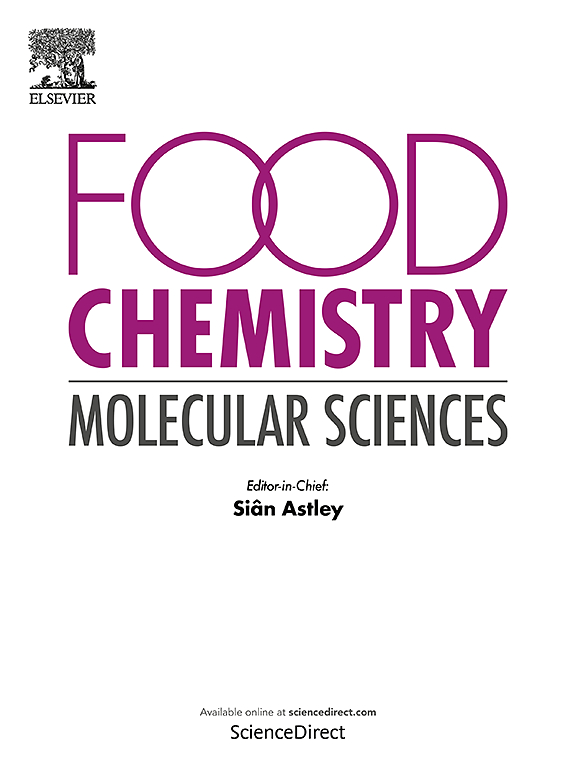Random antimicrobial peptide mixtures as non-antibiotic antimicrobial agents for cultured meat industry
IF 4.1
Q2 FOOD SCIENCE & TECHNOLOGY
引用次数: 0
Abstract
Antibiotics, commonly used in cell culture studies to prevent microbial contamination, cannot be employed in Cultured meat (CM) due to potential residues in the final food products. Hence, there is an urgent need to develop novel and safe non-antibiotic antimicrobial agents. Here, we investigated the potential of random antimicrobial peptide mixtures (RPMs) as non-antibiotic antimicrobial agents. RPMs are synthetic peptide cocktails that have previously shown strong and broad antimicrobial activity; however, their use in cell culture media and their effect on mammalian cells have not yet been explored. Here we show that RPMs had no significant impact on mesenchymal stem cells (MSCs) at concentrations that effectively inhibit bacterial growth. RPMs displayed strong bactericidal activity against Gram-positive bacteria, achieving a 6-log reduction of L. monocytogenes in cell culture medium without any cytotoxicity. Additionally, RPMs showed a low occurrence of resistance development with no significant resistance developed in compared with a combination of penicillin and streptomycin. Moreover, LK20 mixture was rapidly digested in a simulated digestion model. Our results indicate that RPMs have great potential to serve as safe and effective non antibiotic antimicrobial agents in cultured meat industry.
随机抗菌肽混合物在培养肉制品工业中用作非抗生素抗菌剂
抗生素通常用于细胞培养研究以防止微生物污染,但由于在最终食品中的潜在残留,不能用于培养肉(CM)。因此,迫切需要开发新型、安全的非抗生素抗菌剂。在这里,我们研究了随机抗菌肽混合物(rpm)作为非抗生素抗菌药物的潜力。rpm是合成肽鸡尾酒,以前已显示出强大而广泛的抗菌活性;然而,它们在细胞培养基中的应用及其对哺乳动物细胞的影响尚未探索。本研究表明,在有效抑制细菌生长的浓度下,rpm对间充质干细胞(MSCs)没有显著影响。rpm对革兰氏阳性菌具有较强的杀菌活性,在细胞培养基中单核增生乳杆菌的数量减少6倍,且无细胞毒性。此外,与青霉素和链霉素联合使用相比,rpm显示出较低的耐药发生率,未出现明显的耐药。此外,在模拟消化模型中,LK20混合物被快速消化。结果表明,rpm具有作为安全有效的非抗生素类抗菌药物应用于肉制品行业的巨大潜力。
本文章由计算机程序翻译,如有差异,请以英文原文为准。
求助全文
约1分钟内获得全文
求助全文
来源期刊

Food Chemistry Molecular Sciences
Agricultural and Biological Sciences-Food Science
CiteScore
6.00
自引率
0.00%
发文量
83
审稿时长
82 days
期刊介绍:
Food Chemistry: Molecular Sciences is one of three companion journals to the highly respected Food Chemistry.
Food Chemistry: Molecular Sciences is an open access journal publishing research advancing the theory and practice of molecular sciences of foods.
The types of articles considered are original research articles, analytical methods, comprehensive reviews and commentaries.
Topics include:
Molecular sciences relating to major and minor components of food (nutrients and bioactives) and their physiological, sensory, flavour, and microbiological aspects; data must be sufficient to demonstrate relevance to foods and as consumed by humans
Changes in molecular composition or structure in foods occurring or induced during growth, distribution and processing (industrial or domestic) or as a result of human metabolism
Quality, safety, authenticity and traceability of foods and packaging materials
Valorisation of food waste arising from processing and exploitation of by-products
Molecular sciences of additives, contaminants including agro-chemicals, together with their metabolism, food fate and benefit: risk to human health
Novel analytical and computational (bioinformatics) methods related to foods as consumed, nutrients and bioactives, sensory, metabolic fate, and origins of foods. Articles must be concerned with new or novel methods or novel uses and must be applied to real-world samples to demonstrate robustness. Those dealing with significant improvements to existing methods or foods and commodities from different regions, and re-use of existing data will be considered, provided authors can establish sufficient originality.
 求助内容:
求助内容: 应助结果提醒方式:
应助结果提醒方式:


